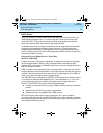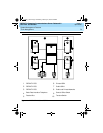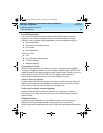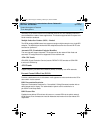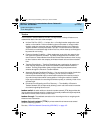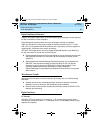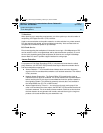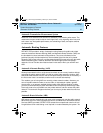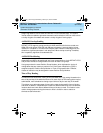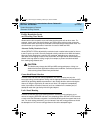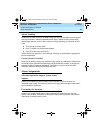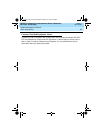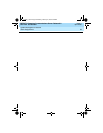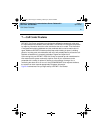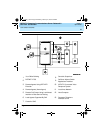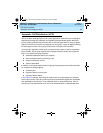
System Management Features
86
Automatic Routing Features
DEFINITY Enterprise Communications Server Release 8.2
Overview
555-233-002
Issue 1
April 2000
assign long-distance carrier-codes and DEFINITY ECS translates them. The system
inserts codes as needed to guarantee automatic-carrier selection. ARS can route calls to
a variety of types-of-numbers and access a variety of types of trunk groups.
AAR/ARS Overlap Sending
DEFINITY ECS supports overlap sending for AAR and ARS calls that are routed over
ISDN-PRI trunk groups. ISDN-PRI call-address information is sent one digit at a time
instead of in one block. In countries with complex public-network numbering plans, this
allows for a significant decrease in call setup time. When overlap receiving is enabled,
this is especially significant for tandemed calls.
AAR/ARS Partitioning
Allows AAR and ARS to be partitioned into 8 user groups within a single DEFINITY ECS
and provides individual routing treatment for each of these user groups.
User groups share the same Partition Group Number, which indicates the choice of
routing tables that are used on a particular call. Each Class of Restriction (COR) is
assigned a specific Partition Group Number or Time of Day specification. Different
classes of restriction may be assigned the same Partition Group Number.
Time of Day Routing
Provides the most economical routing of ARS and AAR calls. This routing is based on the
time of day and day of the week that each call is made. Up to 8 TOD routing plans may be
administered, each scheduled to change up to 6 times a day for each day in the week.
This allows you to take advantage of lower calling rates during specific times of the day
and week. In addition, companies with locations in different time zones can use different
locations that have lower rates at different times of the day or week. This feature is also
used to change patterns during the times an office is closed in order to reduce or
eliminate unauthorized calls.
233002_1.book Page 86 Monday, February 21, 2000 8:28 AM



